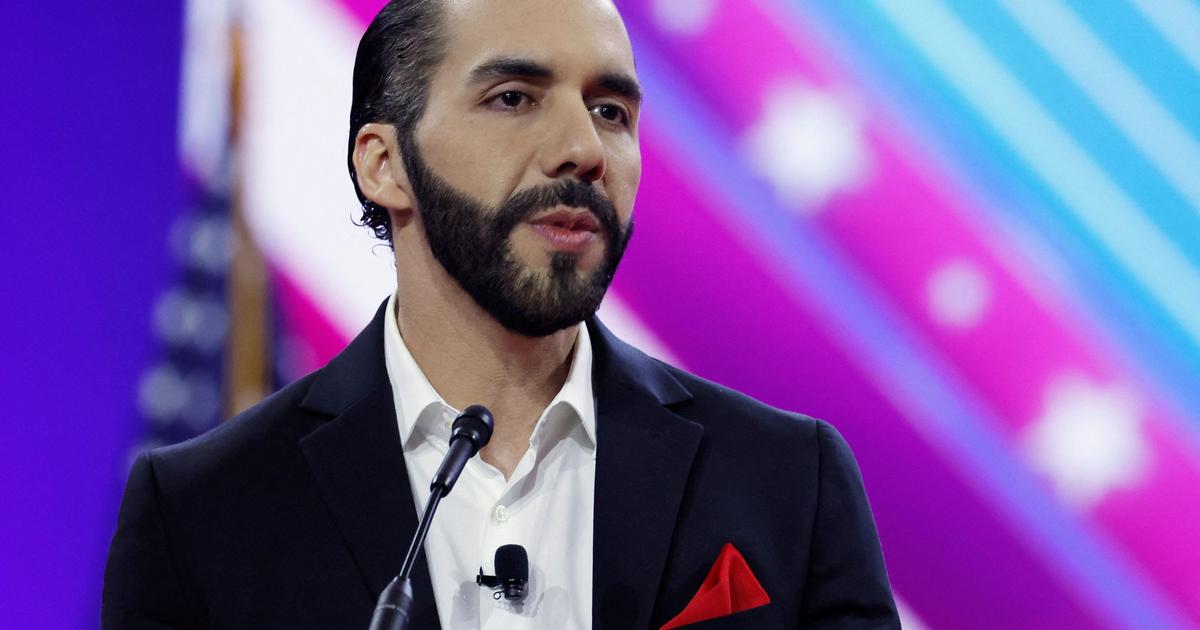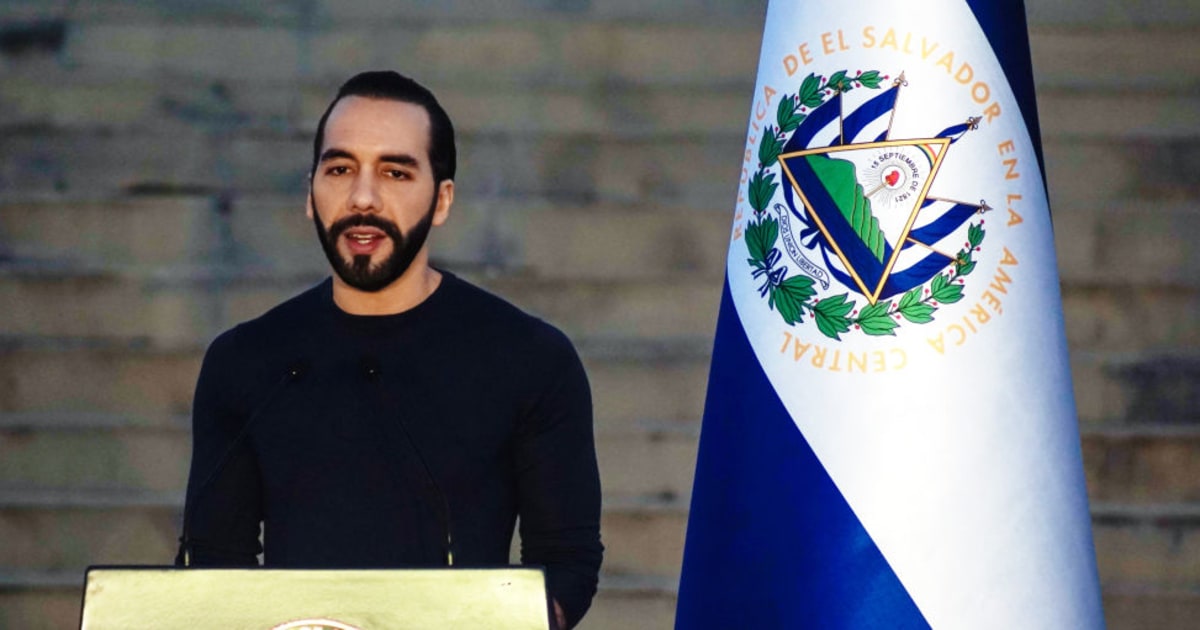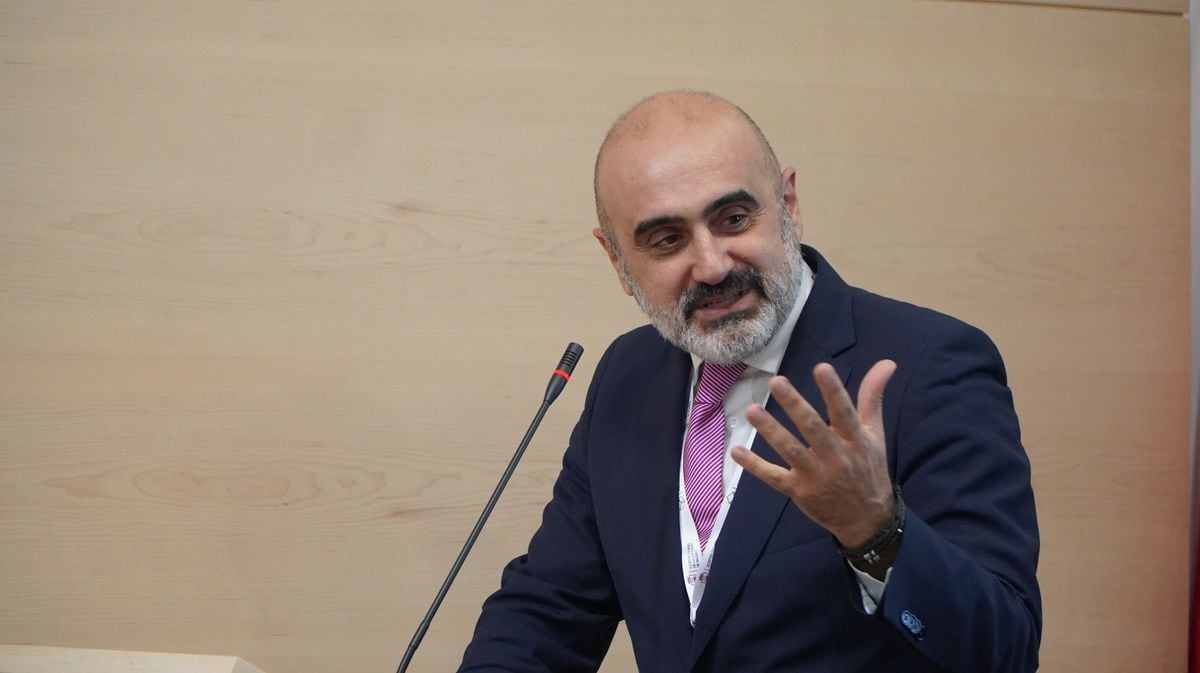Enlarge image
Bitcoin as a means of payment in a shop in El Zonte, El Salvador
Photo: MARVIN RECINOS / AFP
Critics see Bitcoin as an object of speculation, but El Salvador wants to use the digital currency as an opportunity for more independence.
When a corresponding law came into force on Tuesday, the Central American state was the first country in the world to take the step to introduce the digital currency Bitcoin as legal tender.
The law stipulates that every merchant who is technically capable of doing so must accept Bitcoin as a means of payment.
Taxes can also be paid in the cryptocurrency.
President Nayib Bukele announced on Twitter on Monday that the country had bought its first 400 Bitcoin.
These are currently worth around 17.6 million euros.
“Like all innovations, the Bitcoin process in El Salvador also has a learning curve.
Every way into the future is like this, and not everything will be achieved in a day or in a month, ”wrote Bukele on Twitter.
On Monday, the Bitcoin exchange rate rose to $ 52,680.
It peaked at $ 68,870 in mid-April.
By May, the price had almost fallen to the symbolic mark of $ 30,000.
No capital gains tax should be levied on the exchange of Bitcoin.
The exchange rate to the dollar, which is used in El Salvador as an official means of payment instead of a local currency, is to be decided freely by the market.
According to Bukele, anyone who downloads the Chivo digital wallet receives a starting credit worth 30 dollars.
There are also said to be 200 Chivo ATMs.
El Salvador has about six million inhabitants.
The US dollar has been used as a means of payment in the country since 2001.
This makes the country dependent on the monetary policy of the US Federal Reserve.
For the nation's economic growth, it is necessary to allow a digital currency, the value of which depends solely on market economy criteria, says the text of the law.
In addition, around 70 percent of residents have no access to traditional financial services.
Many rely on their loved ones to send money in the United States.
Remittances from Salvadorans from abroad make up around 22 percent of gross domestic product.
In 2020, according to official statistics, transfers totaled 5.9 billion dollars (around 4.8 billion euros).
Rating agency downgrades El Salvador
According to a nationwide survey by the Universidad Centroamericana with almost 1,300 participants in August, around 70 percent of Salvadorans reject the Bitcoin law.
About as many therefore had imprecise ideas about Bitcoin.
Only 4.8 percent of those surveyed correctly defined it as a cryptocurrency.
Bitcoin is the most popular digital currency.
It is not controlled by a central bank, but created by a decentralized, energy-intensive computer process.
The cryptocurrency is considered an object of speculation and is subject to violent price fluctuations.
Some analysts fear that the move to make Bitcoin legal tender alongside the US dollar could hamper prospects for El Salvador's efforts to reach a financing deal with the International Monetary Fund (IMF) worth more than $ 1 billion.
After the Bitcoin law was passed, the rating agency Moody's downgraded El Salvador's creditworthiness.
mmq / dpa / Reuters




/cloudfront-eu-central-1.images.arcpublishing.com/prisa/AWQDFA55JRFZ7EFY4XGGS3VAVQ.jpeg)




